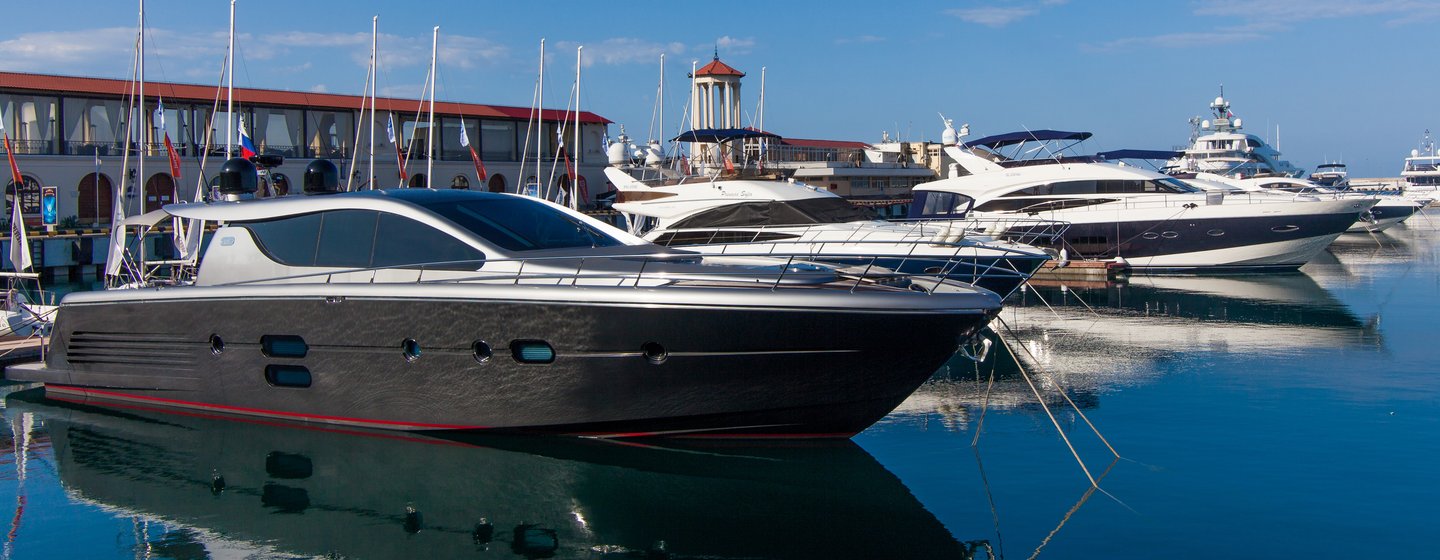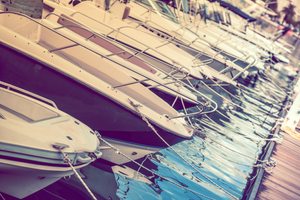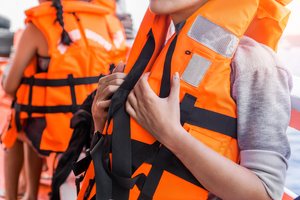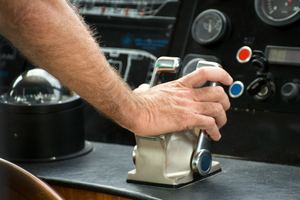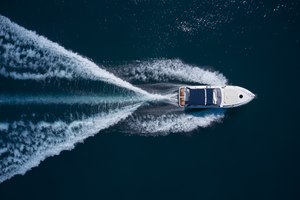While there are several steps involved before you can throw off the bowlines - such as inspections, insurance, and paperwork - buying a boat is definitely within reach. As Mark Twain famously said, it’s to explore, dream, and discover. So, why not?
Sometimes, you need to embrace spontaneity and seize the moment. Picture this: you're with family and friends on a sunny day, strolling by a marina, and you spot the perfect boat for sale. It’s exactly what you’ve always dreamed of—a boat for enjoying days on the water, relaxing, and exploring. If it feels right, and the size and look are spot-on, as Nike says, "Just do it." Everything else can follow. If the opportunity seems perfect, go for it.
Buying and owning a boat is exciting, but there’s a lot to consider. Let's get started!
| Category | Summary |
|---|---|
| Process for Buying a Boat |
|
| Requirements to Own a Boat in the U.S. |
|
| First-Time Owner Tips |
|
What Do You Need to Own a Boat in the US?
✅ Title and registration: Most states require boat registration with your state’s DMV or boating authority. Some also require titling.
✅ Boater Education Card: Many states require a boating safety course and ID card, especially for younger operators.
✅ Insurance: Not legally required in most states but highly recommended (and required if you finance or dock in a marina).
✅ Safety gear: By law, you need U.S. Coast Guard-approved life jackets, fire extinguisher, signaling devices, and navigation lights.
✅ Storage or docking: You’ll need a marina slip, mooring, or a trailer + parking space.
✅ Maintenance plan: Boats require regular care—think engine maintenance, hull cleaning, winterizing, etc.
Everything You Need to Know About Boat Documentation and Registration
To ensure you're buying a fully documented boat without legal or financial issues, verify the following paperwork before closing the deal: the Bill of Sale, current insurance documentation, and registration documents to confirm that the seller is the rightful owner or their representative. If the boat is for sale at a marina, check with the marina office or harbourmaster, as they are likely familiar with both the boat and its owner.
If recent survey records are available, contact the marine surveyor to ask questions and consider arranging a pre-purchase inspection before finalizing the payment. Further details on marine surveys are covered later in this article.
Registration
To register a boat in your name, you will need the original documentation. This is why the documentation is your top priority when meeting with the seller.
No documentation, no deal.
Bill of Sale
This document, signed by both the seller and buyer, includes details of the boat and the purchase price. Ideally, all Bills of Sale from the boat’s history should be available to check for any gaps in ownership and to ensure everything is in order.
Proof of Ownership
Ensure you receive the original boat registration document so it can be transferred to your name.
Registration with Authorities
For boats in British waters, the new owner should register with the Maritime and Coastguard Agency (MCA) under the Small Ships Register (SSR).
Whereas in the USA, Coast Guard registration is mandatory for commercial vessels and recreational boats are registered at the state level, so the new owner should register the boat with their state’s department.
Registration Fees
Fees vary depending on the registration service and must be paid to complete the registration process for all boats.
Ensure the seller provides a full inventory to confirm what is included in the sale. This inventory should detail all equipment, accessories, and any additional items that come with the boat. Having a comprehensive list will help you verify that everything you expect is included and avoid surprises later.
There may be other items onboard that need to be transferred to your name, such as a VHF/DSC radio set.
For larger and more technologically advanced boats, there may be more equipment to register. We provide a link to the YachtBuyer Kit Registration article for further details.
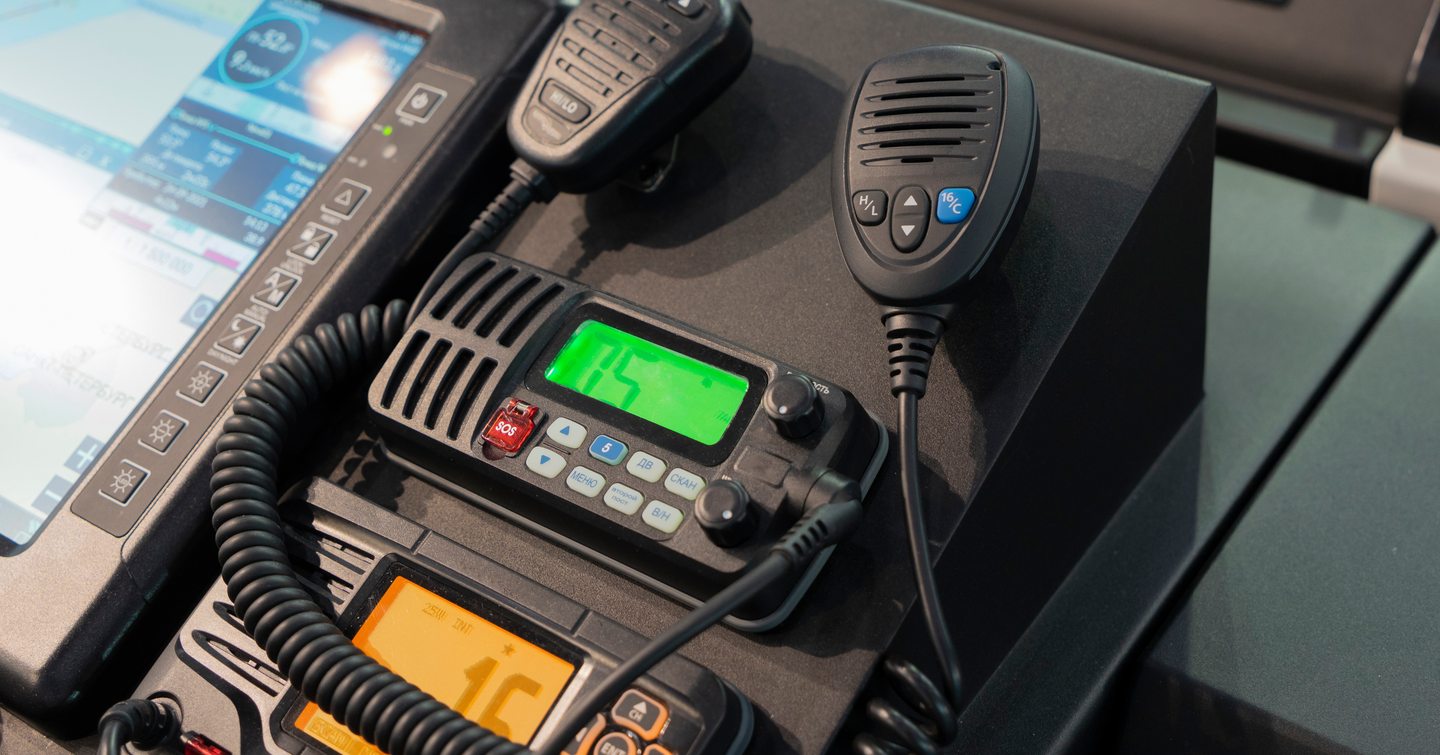
Again we provide the references for the UK and the USA as examples, in the UK, the Maritime and Coastguard Agency (MCA) and Ofcom (the Office of Communications) manage the Ship Radio License system to ensure the radio onboard is licensed and registered in your name. In the USA, VHF radios must be registered with the Federal Communications Commission (FCC).
Training and Certification:
Radio Operator's License: While not mandatory for recreational use, having a license like the Marine Radio Operator Permit (MROP), a Short Range Certificate (SRC), or a higher-level license is recommended for those operating VHF/DSC radios.
The Importance of a Marine Survey When Buying a Boat
Marine surveys are absolutely critical for first-time boat buyers because they serve as your professional protection against costly mistakes and hidden problems. The primary purpose of a pre-purchase survey is to identify any existing problems or areas of concern that may not be immediately visible to the untrained eye.
A marine surveyor assesses both the structural condition and value of a used boat, and it's the nautical equivalent of a termite inspection, plumbing/electrical report, and property appraisal. Surveyors check critical safety systems and structural integrity that directly affect your safety on the water. They'll identify problems with through-hull fittings, fuel systems, or steering that could lead to dangerous situations.
Besides, most insurance companies will require a marine survey to be conducted with the boat out of the water. This allows the surveyor to thoroughly inspect the hull, underwater fittings, and other critical components that cannot be examined while the vessel is afloat. Many lenders also require surveys for financing approval.
In any case, the survey cost (typically $15-25 per foot) is minimal compared to discovering major problems after purchase. Issues like hull blisters, engine problems, or electrical defects can cost thousands to repair.
For first-time buyers especially, unless you're buying a smaller, simpler, and less expensive boat with a low risk of hidden issues, paying for a marine survey before purchase is wise. In fact, it's one of the smartest investments you can make in the boat-buying process.
Choosing Insurance When You Buy Your First Boat
Yacht insurance is essential for safeguarding your investment and providing financial protection against accidents, damages, or unforeseen events at sea or in the harbor.
While some marinas and territorial waters require insurance, not all countries have mandatory regulations. However, in today's litigious environment, securing at least third-party insurance is wise. It is often necessary for marina docking and protects your financial interests.
Given the inherent risks and liabilities of yachting, having appropriate insurance coverage is a practical and responsible choice for any yacht owner, regardless of local regulations.
Premiums depend on factors such as the yacht's value, location, intended use, and the experience of the person in command.
For more detailed information on yacht insurance, visit the YachtBuyer articles below.
How to Buy a Boat: Don't Forget about Mooring
Ideally, in your spontaneous decision to buy a boat, you’ll also secure a berth as part of the package.
When the sale is "berth included," you get the full package deal. If the berth is not included, consider negotiating with the seller to see if the berth can be part of the sale. Additionally, check with the marina office about transfer fees, lease agreements, and availability.
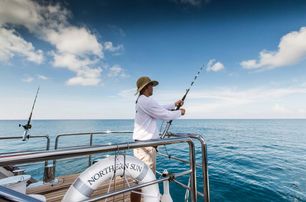


If the berth isn’t included, it may affect your initial excitement. The prospect of having a new boat without a place to dock could give you pause.
On the other hand, this might be an opportunity to find a different marina that suits your preferences—perhaps one that’s closer to home, more scenic, or nearer to your favorite fishing spot or swimming cove. Explore various marina berths and moorings to find the best fit for your needs.
Equipment and Safety When You Buy Your First Boat
Depending on local laws, there are minimum safety equipment regulations based on the size of the boat. If the boat you are considering has been well-maintained and adheres to cruising regulations, it should already have much of the required equipment onboard. If the seller is upgrading to another boat, ask if the existing safety equipment is included.
In the USA, boats over 5m/16ft must carry at least one Type I, II, III, or V personal flotation device (PFD) for each person on board. All boats must also have a sound-producing device (horn or whistle), navigation lights if operating after dark, and a throwable flotation device. Boats 7m/23ft or longer must include a fire extinguisher and a first aid kit.
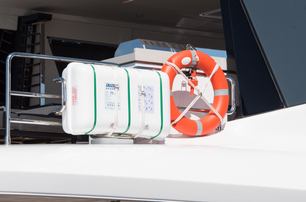
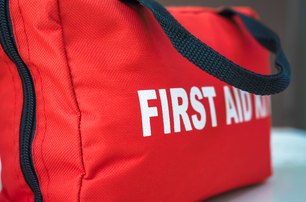
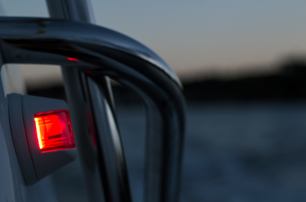
In the UK, regulations are similar but also require a manual or automatic bilge pump or other means of removing water. Boats over 7m/23ft are recommended to carry an emergency VHF radio if operating more than one mile from a safe haven.
While life rafts are, surprisingly, not compulsory, they are highly recommended for boats 10m/32ft and over, and especially for any boat operating more than three miles from a safe haven.
What Should a First Time Boat Owner Know
Here are the essential things every first-time boat owner should understand:
Safety First
Learn basic water safety rules, always wear life jackets, and carry required safety equipment like flares, fire extinguisher, whistle, and first aid kit. Take a boating safety course - many states require certification anyway.
Know Your Boat
Understand your boat's systems including engine, electrical, steering, and bilge pump. Read the owner's manual thoroughly and know where all through-hull fittings and seacocks are located.
Navigation Basics
Learn to read nautical charts, understand buoy markers and navigation aids, and know right-of-way rules. Consider GPS, but don't rely solely on electronics - batteries die and screens break.
Weather Awareness
Check marine weather forecasts before every trip. Understand how quickly conditions can change on water and know the signs of approaching storms. When in doubt, don't go out.
Maintenance Matters
Boats require regular upkeep. Flush the engine after saltwater use, check oil levels, inspect the hull regularly, and keep the boat clean and dry to prevent mold and corrosion.
Docking and Anchoring
Practice maneuvering in calm conditions first. Learn proper anchoring techniques and always carry adequate anchor line - at least 7:1 scope ratio in most conditions.
Legal Requirements
Register your boat, carry proper documentation, understand local boating laws, and know speed limits and no-wake zones in your area.
Budget Reality
The purchase price is just the beginning. Factor in insurance, fuel, maintenance, storage, and repairs. A common rule is to budget 10-20% of the boat's value annually for upkeep.
Start with shorter trips close to shore while you're learning, and consider joining a local boating club or taking lessons from experienced boaters.
The type of boat management training depends on your choice of a boat. Here's how to quickly navigate the boat types and ownership goals:
| Boating Need | Recommended Boat Type | Key Features to Look For |
|---|---|---|
| Fishing (inshore) | Center Console, Jon Boat, Bay Boat | Rod holders, livewell, shallow draft, fishfinder |
| Fishing (offshore) | Sportfisher, Center Console (offshore-rated) | Deep-V hull, twin engines, outriggers, large fuel tank |
| Watersports (wakeboarding, skiing) | Bowrider, Ski Boat, Wake Boat | Tow hook, ballast tanks, powerful engine, wake-shaping system |
| Day Cruising | Deck Boat, Pontoon, Bowrider | Spacious seating, shade (bimini), cooler/storage, swim platform |
| Overnight Cruising | Cruiser, Cabin Cruiser, Trawler | Sleeping quarters, galley, head (toilet), air conditioning |
| Sailing | Sloop, Catamaran, Daysailer | Sail rigging, keel type, navigation systems, livability |
| Exploring/Expedition | Trawler, Explorer Yacht | Long range, fuel efficiency, rugged build, watermaker |
| Entertaining | Pontoon, Yacht, Cabin Cruiser | Open deck space, sound system, wet bar, sunpads |
| Budget-Friendly | Used Bowrider, Inflatable, Jon Boat | Simple systems, trailerable, low maintenance |
Bon Voyage
You have a boat! It might have been a spur-of-the-moment decision based on a long-held dream, but it’s now yours. With all the documentation in place, training completed, and confidence high, it’s time to cast off the lines and head out of the harbor.
Ready to buy a boat? View all new and used boats for sale, tracked in real-time by YachtBuyer. We scan the entire market to ensure access to all genuine listings, saving you time. Alternatively, you can view all yachts for sale.
